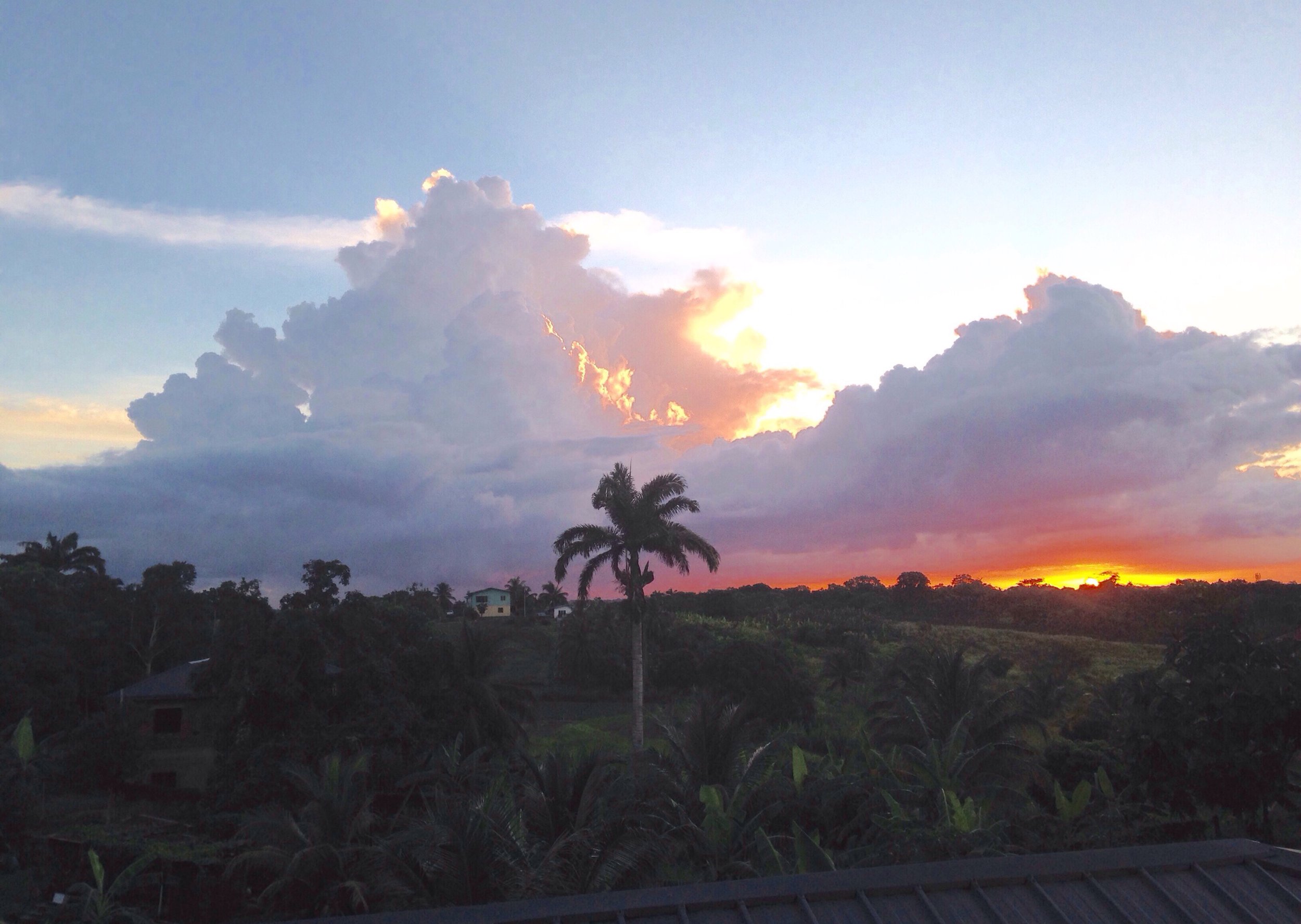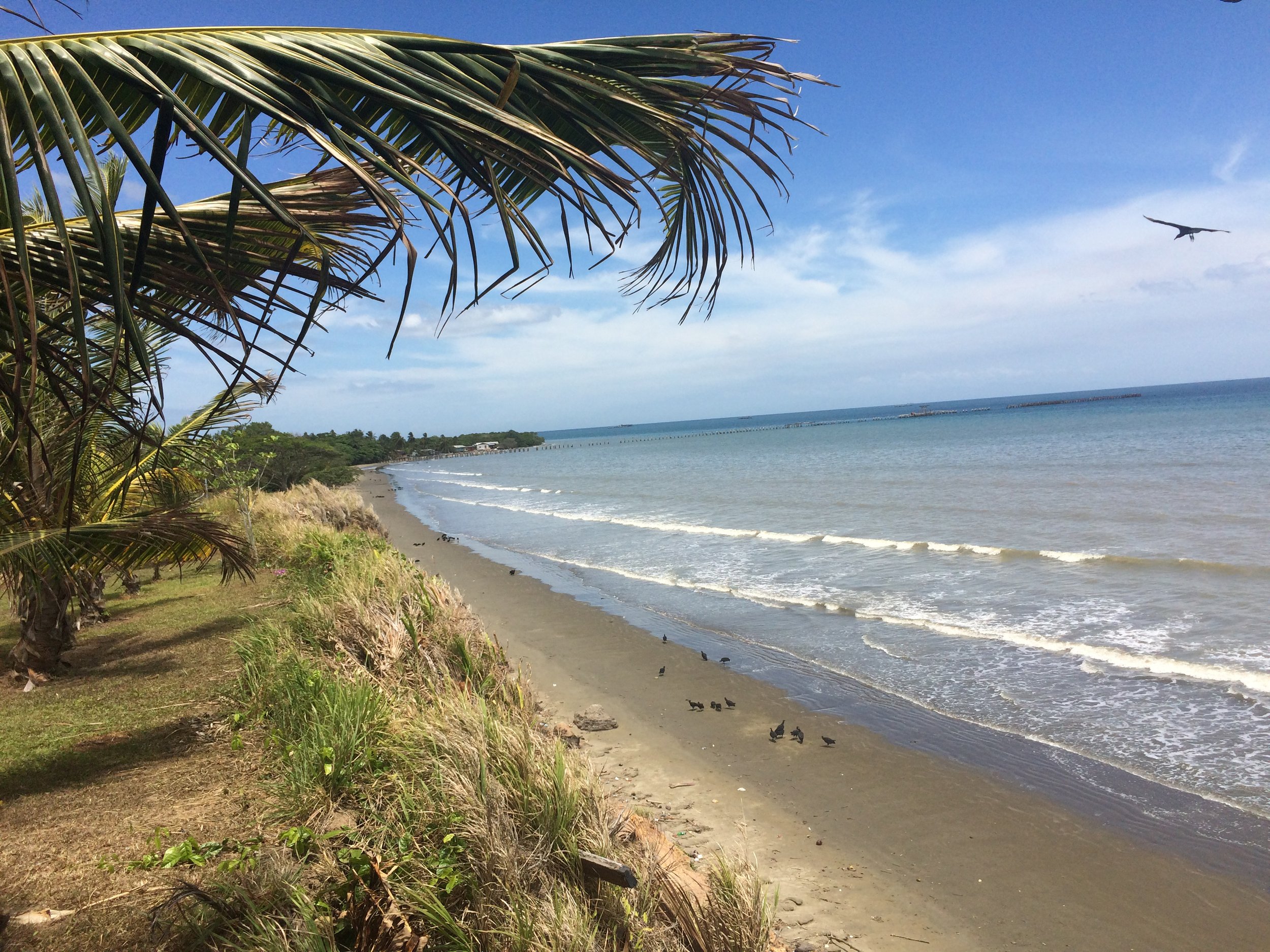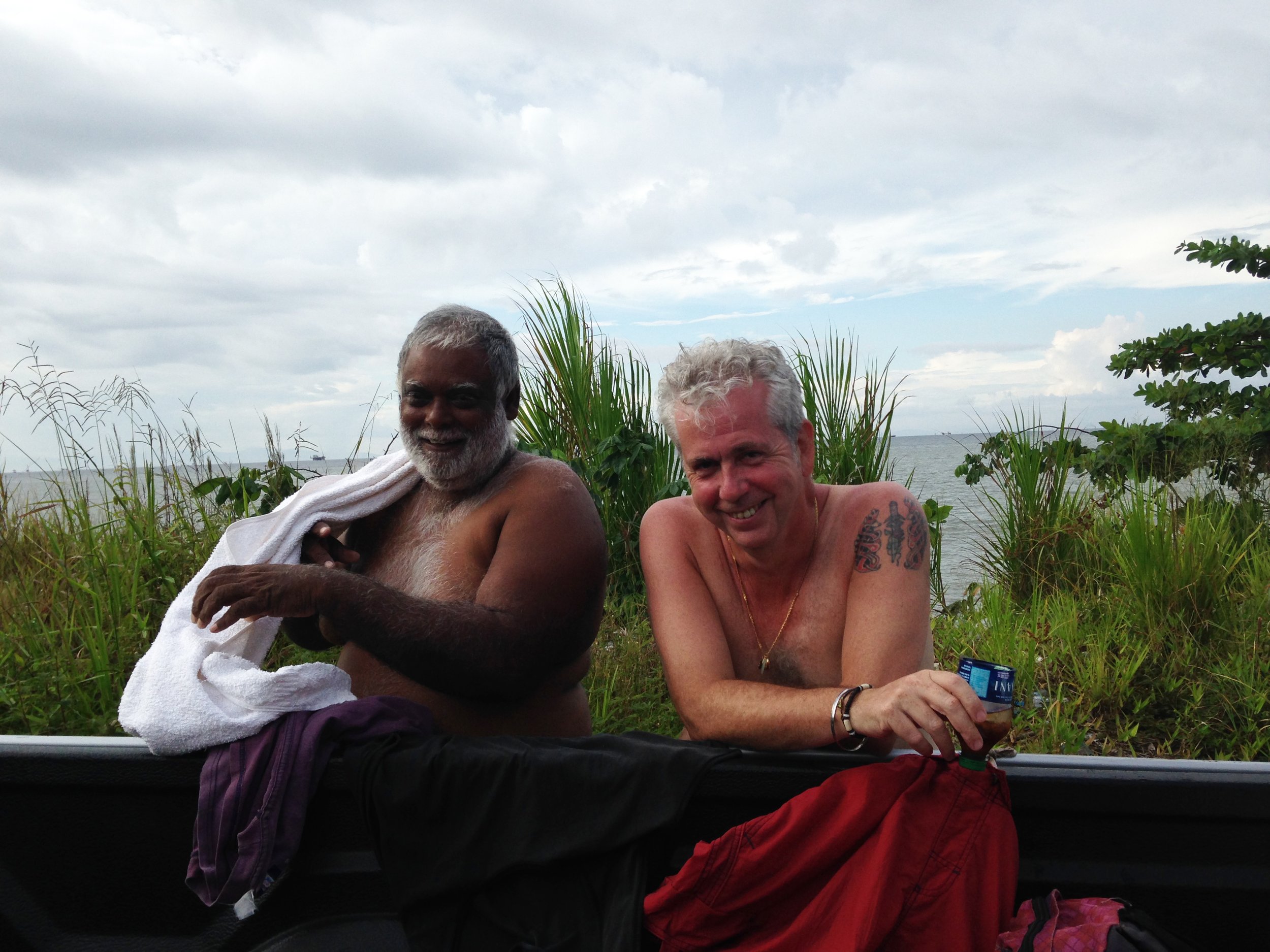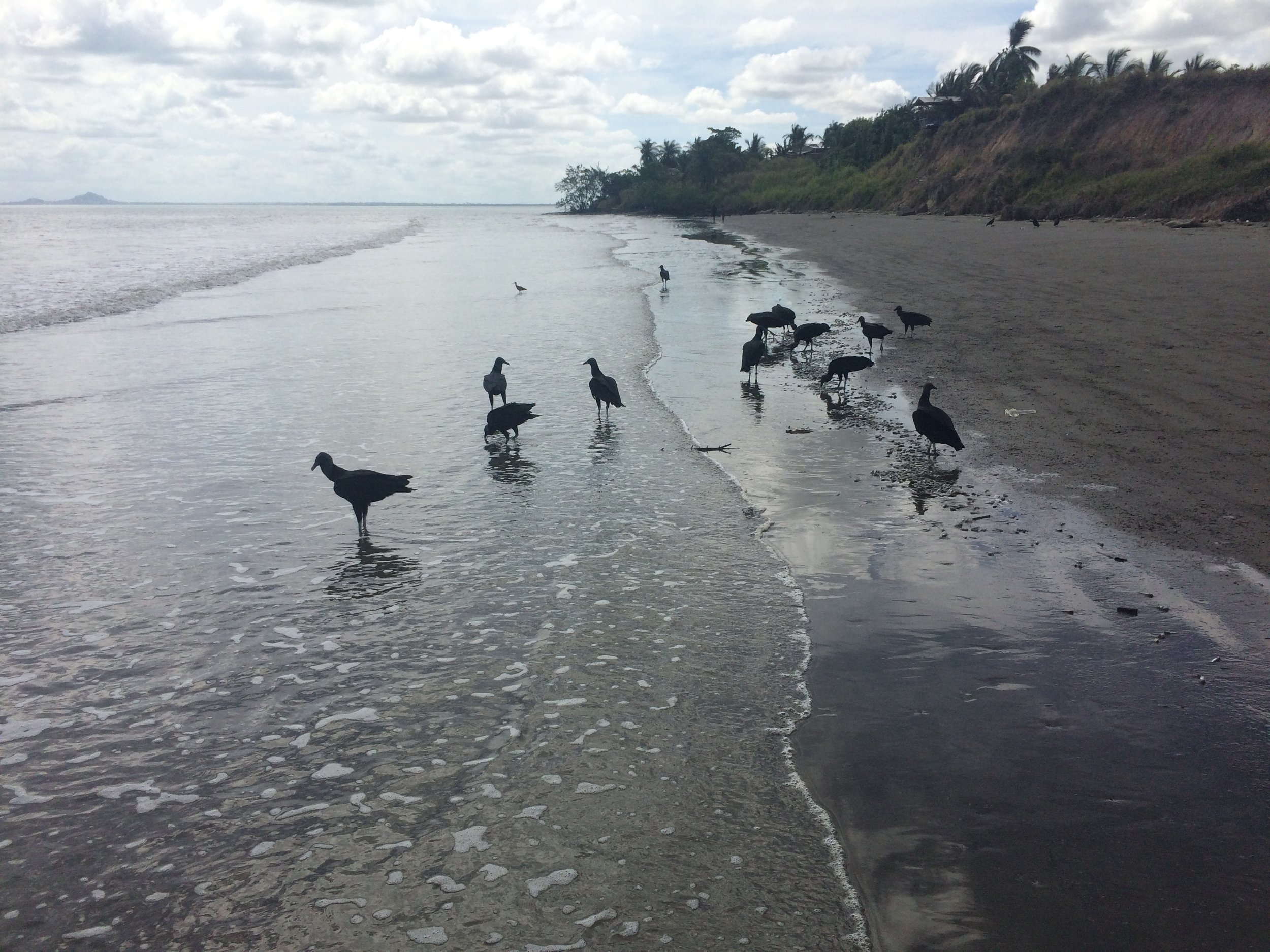Under the Flamboyant Tree
Out now!
Moving between Paris, London and Trinidad, Under the Flamboyant Tree is a tale of love, loss, mystery, violence and adventure, gradually unfolding beneath the Caribbean sky…
“An engaging and well-crafted novel, almost cinematic in scope. Highly recommended!”
“Fantastic find!”
“I loved this book: the combination of an intriguing plot plus well-depicted main characters!”
“I stumbled across this book by chance, and once I started it, I literally couldn't put it down! Wonderfully written, at times hilarious, and lovingly capturing the subtle details of everyday human behaviour intertwined with the Trini way of life - both good and bad. The author's authentic Trini accent in the book reminded me of growing up, living and working in and around Ladbroke Grove in London's Notting hill in the 60's, 70's & 80's. An absolutely delightful book, with a diverse range of characters all embraced within the Trini culture from differing perspectives, situations and stages in life. Thoroughly engaging and highly recommended.”
– Amazon Reviewer
“Don't Judge a Book By the Cover: Don't Judge An Author By the Story!
If you did you'll attribute this book in a line-up of authors from around the world, to a born and bred Trinbagonian author.
If you have missed this book as your summer, sun, sea and sand read; you are in to fiction infused and embedded in a real-life island cultural setting like Trinidad of the Twin-Island Republic; this is your book.
Author, Rick Tucker's book ' Under the Flamboyant Tree' in the Fiction genre, on the oddessy of main character Camille's search for her Trinidadian roots and heritage, is a contemporary compelling capture of the dynamics of life in the vibrant and socially violent elements of modern Trinidad.
Mystery, magic and melee combined with a masterful literary style in language and attention to details in the nuances and cadences of Trini culture; will captivate, and inform The read will transport you to life in the carnival isle for the price on Amazon, instead of an airfare to Trinidad. Take it from a Trini author born and bred.”
Reviews
Author interview
Click here to download the cover image
Rick talks about the inspiration for Under the Flamboyant Tree with Danni Blechner, his publisher at Conscious Dreams Publishing.
The original interview appeared here
The man behind Under the Flamboyant Tree
So I caught up with our author, Rick Tucker. Rick published his novel, Under the Flamboyant Tree with us and I thought I’d dig deep and find out who lies under the talent. Rick is an interesting man, for sure. Born in the UK, spent his early childhood growing up in Venezuela and Iran, married to a Trini and has a penchant for the Blues and love of Trini culture, Rick’s life experience is surely a rich tapestry.
Having read and published his book, the question on my lips was, how did he, as a Caucasian man from London (now resides in Buckinghamshire), manage to represent Trini culture, dialogue and setting so authentically?
Where did you grow up? Tell us a bit about the experience.
My family moved around a lot when I was young, including spells in Venezuela and Iran, of which I have few, but real, memories. From the age of 7, I lived close to London, and then in London, where I remained mostly for the next 40 years. Moving so much means I never formed any real roots, so I have always searched for roots to cling onto. The need for roots is a theme in much of my writing, including Under the Flamboyant Tree.
What inspired you to write Under the Flamboyant Tree?
Firstly, Trinidad and Tobago is a country of extremes, which have to be experienced to understand, but which I felt compelled to write about. I love the place and the friends and family I have there. There is beauty in abundance, but also crime, poverty, ancient traditions, a mix of religions and races, and an extraordinary history. Secondly, the whole issue of roots – what are they? Why do we need them? Being part of a mixed-race family myself, I’m very aware of how important it is to understand where you come from. I wanted a character who felt this urge to find out who she was, who embarked on a romantic quest, but who then experienced the reality and had to come to terms with that. It’s not an easy journey.
Have you always had an interest in Trini culture? Tell us about your experience.
My interest comes from being married to a Trini, traveling there many times, and having an enormous extended family over there. Everything from the language, the food, the climate, the poverty, the flora and fauna, the lack of pretentiousness, just the way people live(d) was completely new to me, bearing no semblance to life in the UK and certainly none to the picture-postcard image most tourists would have. As the only white person for miles around, I often felt self-conscious and uncertain at first and had to adapt, but the warmth and generosity of family and friends helped me to feel at home there. I’m accepted for who I am there, which is great to experience.
How important was it to get the authentic Trini culture and dialogue right?
Essential. Because of my love and respect for the people I know there, I wanted to honour that, but also I didn’t want to paint an unrealistic, romanticised picture of it. Trinidad has a high crime and murder rate, there are real social problems there, and so I wanted that to be described too. I wanted the reader to understand all the wondrous things, but also the darker side of life there. In my book, a lot of action takes place in a bar called ‘Neighbour’s Bar’ and this was inspired by my favourite bar in Trinidad. All the settings in the book, including those in Paris and London, are based on my personal experiences and observations.






As a Caucasian man from the UK, what challenges did you find writing a book based in Trinidad with Trini characters?
I feared imposter syndrome, I feared being accused of appropriation, and I feared not representing the place and the people honourably. There’s hardly a white character in the book. But then I thought that white people who have an insight into issues of race and culture, and gender, and who have had an authentic experience of the Caribbean, one which is intellectually and emotionally genuine, need to express that without fear. I hope that non-white readers feel I have been true and honourable; one reviewer said, as a mixed-race person she felt ‘represented’ and that meant a lot to me. I also wanted to show white readers something of the legacy of imperialism, at the same time dispelling any idealised views they might have of the Caribbean.
What is the main message of the book?
That people (especially women) can break free from oppression and find themselves. But it’s far from easy.
You have a strong female lead as your main character, how easy was that to write exploring a woman’s perspective?
In the same way that I wanted to be genuine and honourable about life in T&T, I wanted the same for my representation of women. Not only is the lead character a woman, but many of the strongest characters are female too. As a father to a daughter, but also as a creative human being, one with many friends and family who are women, I am conscious of the female experience as much as I can be, and I am always trying to be more conscious. I’m also conscious of how men can be, how a patriarchal society and toxic masculinity affect relationships and experiences for women. Growing up, I was profoundly affected by witnessing how a patriarchal system couldn’t alleviate female suffering. Something I witnessed again as a mental health professional. So, it wasn’t easy to write about, but it came naturally to me to do so.
You include some of your own Blues lyrics in your book, tell us about that and your music career?
There’s not much of a career to write about. I was in bands in my early 20s and played live a lot. I gave it all up to work in mental health, be a parent, pay a mortgage, etc, but have always played. Music is ever-present in my life. I love it, breathe it, collect it. Covid put a stop to a reawakening of my songwriting, playing and singing and I was in a duo playing acoustic blues, but we haven’t done much for two years. There’s talk of us starting up again, so who knows? I love it though.
What are your hopes and dreams for the book?
I don’t believe any author who says they don’t mind if their book doesn’t sell. I would love it to be successful in terms of sales, but most of all I’d like it to be an acceptable addition to the pantheon of books about the Caribbean, race, and gender. Some good reviews in publications would be good. Someone suggested to me that the book would make a good film. I agree!
Have you always loved writing? What’s next in your writing career?
I have always needed to write creatively since I was a young boy making up stories. I don’t know if ‘love’ is the word. I’m compelled to write, it feels like a burden sometimes, to be honest, but I guess I do love it when it’s flowing and there’s no gap between what’s inside of me and the words appearing as if my magic or alchemy in front of me. As for what’s next, I’ve written another novel, set in Germany between the wars, so it’s far away from the Caribbean, but exploring some similar issues at times, and I’m currently trying to find an agent who likes it. I’ve started the novel after that as well, which is a tragic romance set in a small Scottish village. I also write poetry, but only a few poems in a year, I’m not prolific with poetry at all, but wouldn’t mind getting a collection of those accepted for print.
What inspires your writing?
Much of what I write comes from personal experience – not just in terms of where I have worked or travelled, although they have influenced the way I look at the world a great deal, but also in terms of what I have learned from observing people and the relationships they are in with other human beings in so many different and varying contexts. I understand the frailty of human beings and have had my fair share of personal challenges over the years, so that’s what I like to write about – how we interact with the world around us and the people who are in it and how that affects our own individual internal dialogues. Whether it’s love or money or addictions or adrenalin or faith – whatever it is we expend our energy on in trying to achieve – we all remain vulnerable to the unpredictability of life. How we react to that determines much of who we are. The ties that bind us are gossamer thin.
